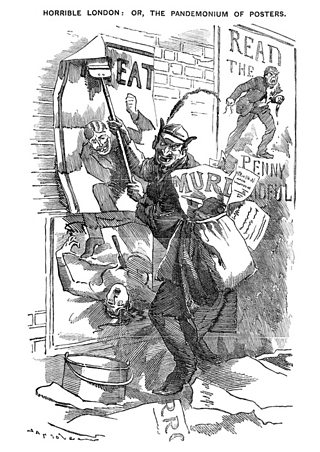Why are we so fascinated by true crime?

Written by Dr Julia Shaw, host of Bad People on Βι¶ΉΤΌΕΔ Sounds
In true stories of crime there is also great opportunity for empathy and understanding.
True crime stories continue to be incredibly popular, but why?
Every true crime story comes with the potential for sensationalising, othering, and dehumanising. Revelling too long in these stories of others’ misery can quickly become a rather callous and almost psychopathic exercise in hedonism.
But in true stories of crime there is also great opportunity for empathy and understanding. It can remind us that the consequences of harmful behaviour can be immense, potentially affecting victims and their loved ones for the rest of their lives. We can also get to know the offenders, realising that perhaps before perpetrating a heinous crime they - like us - may have thought themselves incapable of doing such a thing.
Perhaps the most fertile thought experiment of all is the one where we allow ourselves to really, truly, see the humanity in populations that others readily dehumanise. Realise that they are actually us.
Our hunger for true stories of violence seems to exist on a spectrum. The spectrum includes reading violent news stories, listening to - and watching - true crime shows, collecting things once owned by murderers, writing fan letters to convicted offenders, and marrying serial killers. Everyone draws their line between what is acceptable interest and what is too much somewhere, but almost no one opts out of engaging with this spectrum of true crime fascination entirely.
As a scientist who specialises in criminal psychology, my tendency is to turn to look for academic research to help me answer questions.
Here are three things that researchers say draw us to true crime, and keep us coming back for more.

1. We love to be outraged together
Criminologist Oriana Binik calls it the “the carnival of crime”. Binik argues that we live in an “emotional capitalist” society where people are continuously in search of strong emotions to consume. These strong emotions play into our more fundamental desire for social cohesion.
We like true crime because it’s something we can talk about as a group. We can gossip, speculate, and be afraid or excited together.
In other words - we like true crime because it’s something we can talk about as a group. We can gossip, speculate, and be afraid or excited together. This will come as no surprise to true crime fans, who often have their own nicknames and identities, and bond over the gory details of each episode.
True crime is an effective, albeit macabre, social glue.
2. We love celebrity
There is the idea, discussed by researchers like Sociologist Julie Weist, that news media routinely sensationalise modern serial killers as celebrity monsters. We can even take this a step further, and argue that serial killers are a brand. How is this brand built?

According to senior lecturer of social work Ian Cummins and colleagues, there is a sort of serial killer brand template. We give the offenders a nickname - like the Night Stalker, the Ken and Barbie killers, or Jack the Ripper. We also generally focus on the childhood of the offender as a way to explain their behaviour. In the process, we marginalise victims and their families to instead talk about the motivations of the murderer.
This last point, that we talk too much about offenders of violent crimes and too little about victims was recently picked up in an article in Time. Journalist, Melissa Chan, discusses the human cost of true crime series, which can involve re-traumatising victims and their families. This is an important point to keep in mind when producing, consuming, and sharing these stories.
There are real people who have been affected by every true crime case you come across, and they don’t have the luxury of simply turning off a podcast and getting on with their lives. Our entertaining stories are their gruelling memories.
Yet, as a criminal psychologist I’ve always been more fascinated by those committing the crime - probably because if we can understand the perpetrators and use this knowledge to prevent crime, then we also prevent victimisation in the first place.This includes better understanding, and controlling, the darkness that lurks in us all.
3. We want to be unique
This third reason has particularly been proposed in the context of true crime collectibles, or murderabilia - things that can be bought that were created or once owned by murderers.
Owning a delouser that was used on Jeffrey Dahmer is one way to have something that no one else has.
Cultural criminologist Jack Denham has written about criminal memorabilia in a few outlets. He has argued that we want to “transgress banality and sameness” rather than endorse transgression itself. In other words, in a world filled with things that are mass produced, we are looking for ways to feel different. Owning a delouser that was used on Jeffrey Dahmer is one way to have something that no one else has. If you are looking to stand out from the crowd, the fact that most people think that such a thing is gross or weird is part of the charm.
Similarly, true crime fan communities who share details of a serial killer’s murders aren’t therein endorsing these crimes - they are building their unique identity.
As for those who take this to the extreme, and write love letters to imprisoned murderers, or marry serial killers... that’s the topic of episode one of my new Βι¶ΉΤΌΕΔ Sounds podcast “Bad People”. With my co-host comedian Sofie Hagen, we will explore true crime cases and I break down relevant scientific insights. Tune in weekly from July 30th, 2020 to learn about why people do bad things and what it ultimately teaches us about ourselves.

Dr Julia Shaw is a research associate at University college London. She is an expert on criminal psychology, and the author of two international bestsellers “Making Evil: The Science Behind Humanity’s Dark Side” and “The Memory Illusion: Remembering, Forgetting, and the Science of False Memory. Her website: www.drjuliashaw.com, and twitter @drjuliashaw


